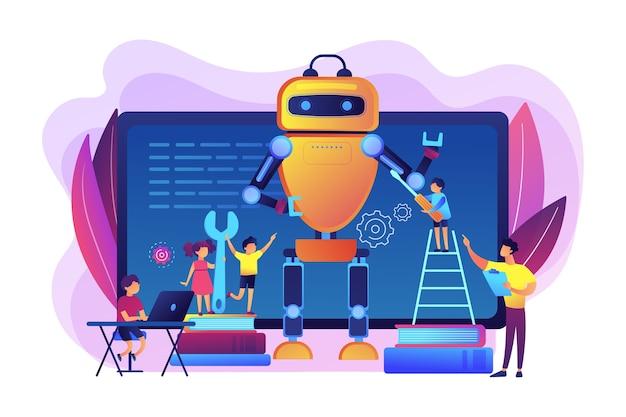Introduction
In the fast-paced digital era, traditional education methods are being revolutionized by the emergence of smart learning. This innovative approach utilizes technology to enhance the learning experience and deliver personalized education to students.
The Importance of Smart Learning in Advanced Education
Smart learning is becoming increasingly important in advanced education due to its ability to adapt to individual learning styles. It allows students to access information at their own pace and provides a more interactive and engaging learning environment. By leveraging technology, advanced education institutions can empower students to take control of their learning journey, fostering critical thinking, creativity, and problem-solving skills.
Benefits of Smart Learning Technologies
Smart learning technologies offer numerous benefits to students and educators alike. These include:
- Accessibility: Smart learning platforms enable students to access educational resources anytime and anywhere, providing greater flexibility and convenience.
- Personalization: With advanced analytics and artificial intelligence, smart learning technologies can create personalized learning paths tailored to each student’s strengths, weaknesses, and preferred learning styles.
- Engagement: Interactive multimedia content, gamification, and virtual reality simulations make learning more enjoyable and immersive, increasing student engagement and motivation.
- Collaboration: Smart learning platforms facilitate collaboration among students and educators through discussion forums, online group projects, and real-time feedback, fostering teamwork and communication skills.
- Efficiency: Automated assessment and data-driven feedback systems help educators monitor student progress in real-time, identify areas of improvement, and optimize the learning experience.
As smart learning continues to advance, it has the potential to reshape the future of advanced education, making learning more accessible, engaging, and effective.
Virtual Reality in Education
Enhancing Learning with Virtual Reality
Virtual Reality (VR) is revolutionizing the way we learn and experience education. It offers immersive and interactive experiences that engage students in a way traditional methods cannot. VR creates a simulated environment that stimulates multiple senses, making learning more memorable and enjoyable. This technology allows students to explore places they have never visited and participate in activities they would otherwise not have access to. From science experiments to historical reenactments, VR has the potential to bring subjects to life and deepen students’ understanding.
Virtual Reality Tools and Applications in Education
The use of VR in education extends to various fields and disciplines. In science, students can conduct virtual experiments in a safe and controlled environment, enhancing their understanding of complex concepts. In history, they can step into the shoes of historical figures and witness key events firsthand. The medical field benefits from VR as well, providing realistic simulations for surgical training and patient screenings.
Educators can utilize VR tools such as Google Expeditions or Oculus Rift to create interactive lessons that captivate students’ attention and facilitate active learning. VR has also proven to be effective in special education by providing personalized and inclusive learning experiences.
Overall, virtual reality is transforming the way we educate. It opens up new possibilities for engagement, exploration, and understanding. As technology continues to advance, integrating VR into education is bound to become even more widespread, enriching the learning journey for students worldwide.
The Role of AI Tutors
Imagine a future where every student has access to a personal AI tutor. These AI tutors are available 24/7, patiently guiding students through their studies, answering questions, and adapting their teaching methods to match the student’s learning style. AI tutors can pinpoint areas where students struggle and provide additional exercises or explanations to reinforce understanding.
Studies have shown that students who receive personalized tutoring outperform their peers. AI-powered tutors have the potential to level the playing field, offering high-quality, individualized support to all students, regardless of their geographical location or socioeconomic background.
Read In 2022 Six Educational Technology Trends That Go All Out

